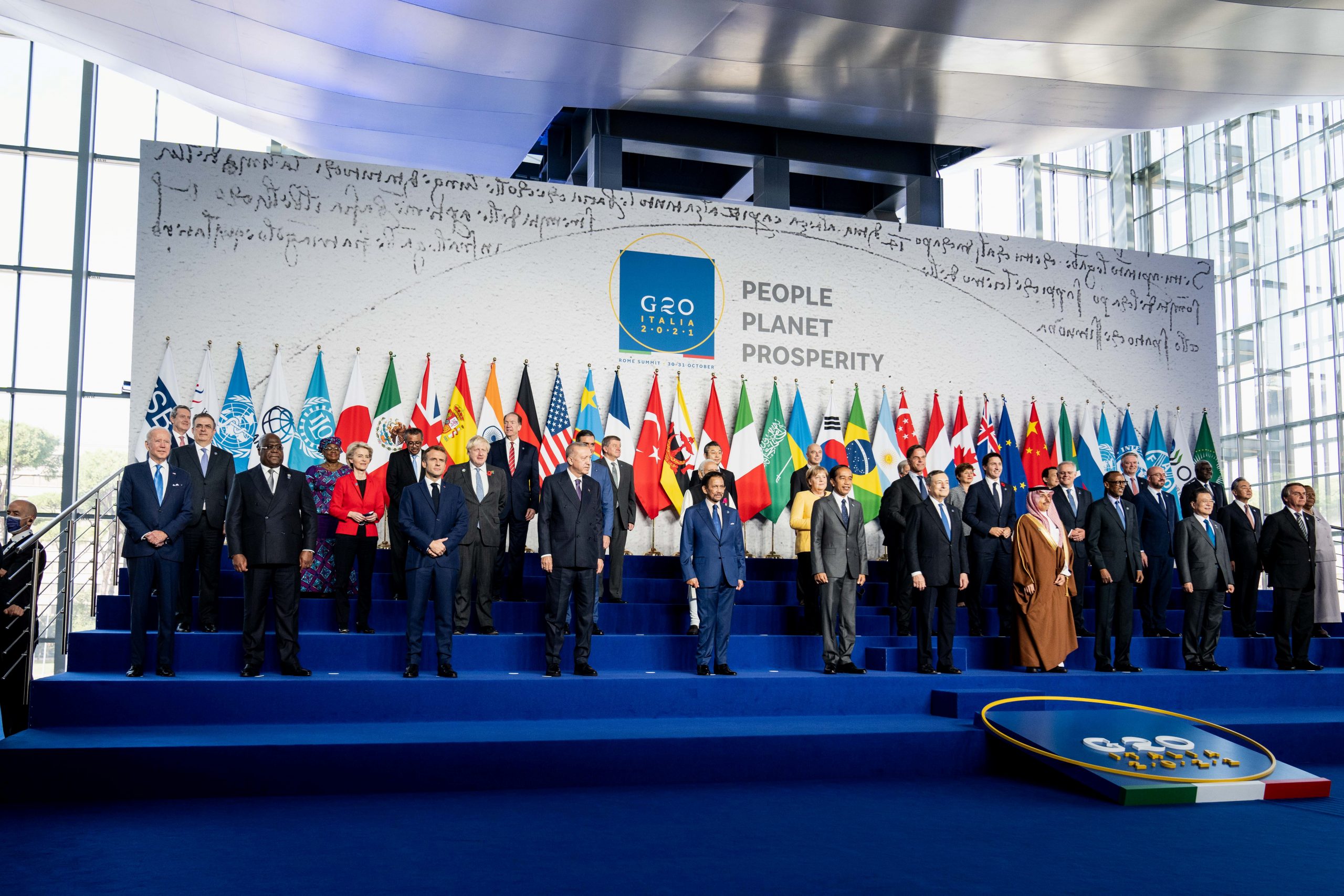
Lauren Moye, FISM NEWS
[elfsight_social_share_buttons id=”1″]
World leaders will continue to focus on environmental and economic matters this week, as the G20 Summit ends the COP 26 climate summit begins. Both summits are responsible for making decisions with global consequences, including the first minimum global tax approved by the group of 20 leaders in history.
The world’s largest economic players met in Rome on Saturday and Sunday where they discussed and adopted measures for global economic and climate concerns. This was the first G20 Summit held in two years due to the COVID-19 pandemic. World Leaders voted to stop funding new coal plants abroad by the end of 2021. The countries, however, did not agree on restrictions for domestic coal use, largely in what was seen as a concession to China.
President Joe Biden presented the 15% global tax at the summit prior to its approval. In a statement in October Biden claimed one benefit of the deal would be eliminating incentives for companies to shift jobs and profits abroad, ensuring that multinational corporations pay their fair share in countries in which they conduct business. The statements touts the global buy-in saying, “This international agreement is proof that the rest of the world agrees that corporations can and should do more to ensure that we build back better.”
The world leaders, representing 80% of the world’s gross domestic product, voted in favor of the global tax rate that will raise the current minimum from 0% to 15%. They stated in their final communique that this would create “a more stable and fairer international tax system.”
The Biden administration revoked former President Trump’s ban that allowed small businesses to opt-out of global taxes in February. FISM previously reported that “many small businesses could face devastating economic consequences” because of this if G20 passed its global tax deal and that it “could destroy America’s free-market economy.”
The G20 Summit also reaffirmed a need to cut carbon emissions after countries fell short of this year’s target goal. They approved wording for a communique, part of which states: “We recognize that the impacts of climate change at 1.5°C are much lower than at 2°C. Keeping 1.5°C within reach will require meaningful and effective actions and commitment by all countries.”
They formally agreed that carbon neutrality needs to be reached “by or around mid-century,” and also discussed the possibility of using “carbon pricing mechanisms and incentives” to help meet these goals. However, the G20 Summit concluded without making firm actionable plans for meeting goals.
These world leaders also noted they had failed to deliver on a 2009 promise to annually fund $100 billion for developing countries to fight climate change.
The Conference of the Parties (COP26) climate summit is expected to pick up both conversations throughout this week.
Britain’s Prime Minister Boris Johnson opened COP26 by stating: “Humanity has long since run down the clock on climate change. It’s one minute to midnight on that Doomsday clock and we need to act now.”
He also said, “If we don’t get serious about climate change today, it will be too late for our children to do so tomorrow.”
COP26 plans to address climate concerns through the use of three levers. They want to encourage participating countries to develop more ambitious plans to cut carbon emissions, address the failed $100 billion in funding while setting a new finance goal for 2025, and finish developing the Paris Agreement rulebook.
The rulebook must address contentious issues like the carbon market and how to set climate targets. The almost 200 countries who signed the Paris Agreement will then be expected to follow the rules decided on at the conference.
